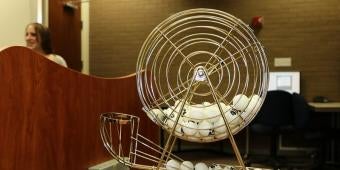The University of Pittsburgh Experimental Economics Laboratory (PEEL) is a center for research on the nature of human decision-making, how individuals interact within organizations and markets, and the determinants of aggregate economic, political, and social outcomes. The faculty and graduate students involved with PEEL come from a range of disciplines, including economics, political science, public policy, decision sciences, neuroscience, and business.
PEEL was founded by Professor John Kagel and Professor Alvin Roth, Nobel Laureate in Economics, and the lab has been the site of path breaking research in economics for decades. Research conducted at the lab is featured in the highly influential Handbook of Experimental Economics, edited by Kagel and Roth. The groundwork for Professor Roth’s Nobel Prize winning research on market design was also laid at PEEL. This line of research used experiments to test centralized matching algorithms, which are now widely used to allocate resources where ordinary markets fail. Applications include the residency match for new doctors, school choice mechanisms used to assign students to grade schools, and kidney exchange programs that save lives by more efficiently matching donors with recipients. The laboratory continues to attract faculty who are leading researchers in experimental economics.
What the PEEL laboratory offers to researchers is a controlled environment for studying behavior. The overarching methodology for research at PEEL involves giving subjects real incentives for decision making. The lab facilities include forty networked PCs running the latest software, which can support investigation of individual decisions, but also the collective behaviors of larger groups or markets.
PEEL is also a platform for research that extends beyond the physical confines of the lab. Measurement techniques developed and validated in laboratory experiments are now used to measure human traits in diverse populations around the world. Field experiments, where workers within companies are randomly assigned to different incentives, or low-income individuals receive different savings options, benefit from initial studies in the lab that sharpen and target the subsequent implementation in the field. The expertise of the PEEL research community also supports conducting experiments online, and through mobile devices.
The laboratory is an invaluable training resource for graduate students, and an important reason why the University of Pittsburgh is a great place to pursue a PhD in economics. PEEL affiliated graduate students gain experience by running experiments with faculty, and later conduct their own research studies in the lab. The regular seminar series in experimental economics exposes students to top researchers from around the world, and the weekly lab meetings, which bring together all associated faculty and students, provide a forum for feedback, mentoring, and advice on developing, executing, and publishing top quality research.

The Pittsburgh Experimental Economics Laboratory is always looking for participants for its paid decision-making experiments.

Meet the faculty, PhD students, and undergraduates who comprise the PEEL team.

